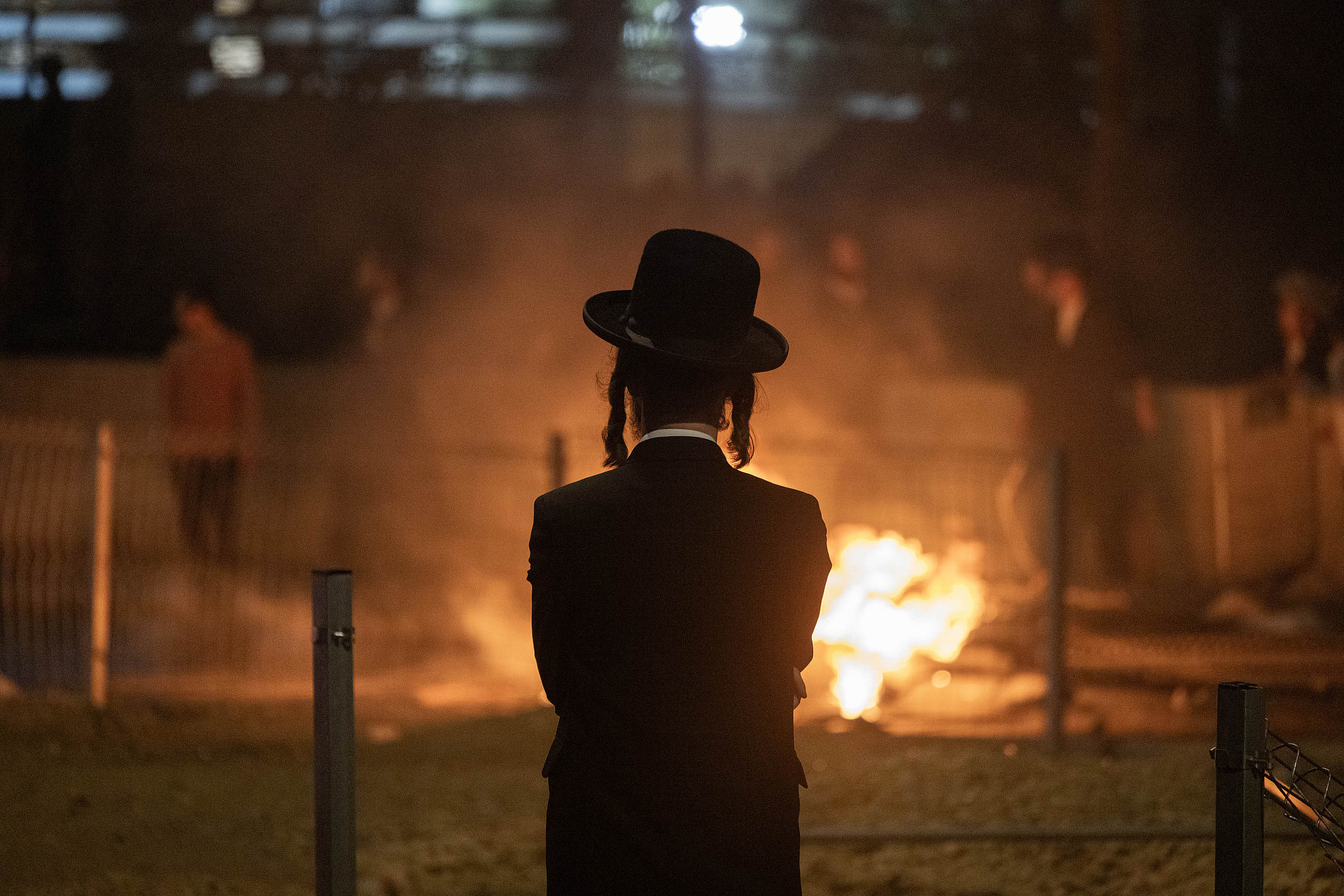On Sunday evening, thousands of ultra-Orthodox Jews demonstrated in Jerusalem against last week’s landmark High Court ruling, which mandates the conscription of Haredi youth into the Israeli army. The largest anti-draft rally in a decade united several Haredi factions, whose adherents carried signs that read “We will not enlist in an enemy army,” “We would rather live as Jews than die as Zionists,” “To jail and not to the army,” “Zionism uses Jews as human shields,” and other critical slogans in Hebrew and English.
Protesters attacked cars transporting two Haredi political leaders, burned garbage cans, and tried to rip fences and traffic signs out of the ground. Police attempted to forcibly disperse them using mounted officers, batons, and a water cannon loaded with “skunk” — though many of the remaining demonstrators, including young children, jubilantly endured powerful jets of the foul-smelling liquid. A handful of protesters were arrested.
Since the Israeli state was founded, the ultra-Orthodox have been exempt from mandatory military service — yet this policy has long been a controversial political and legal issue. With Haredi men devoting their lives to Torah study, the community sees conscription as an attack on their way of life. For the more staunchly anti-Zionist sects, which have spearheaded the recent protests, serving in the Israeli army is incompatible with their view of the state as illegitimate for having been established before the return of the messiah.
But amid the Gaza war, calls for the conscription of ultra-Orthodox youth have grown louder than ever. Around 60,000 are of eligible military age, and many Israelis see their non-enlistment as a breach of their citizenship obligations. Following the expiration of a long-standing law exempting Haredim from the army, the High Court ruled unanimously on June 25 that Haredim must be drafted, and barred the government from funding religious schools (yeshivot) whose students do not enlist. “In the midst of a grueling war,” the ruling stated, “the burden of inequality is harsher than ever and demands a solution.”
The Hebrew media described the protesting factions as “extremists” — and in their relation to the majority of Jewish-Israeli society that venerates the military, they are certainly extreme. But at Sunday’s rally they showed that they are capable of bringing huge numbers onto the streets, as well as mobilizing a broad coalition of ultra-Orthodox factions to join the rebellion.
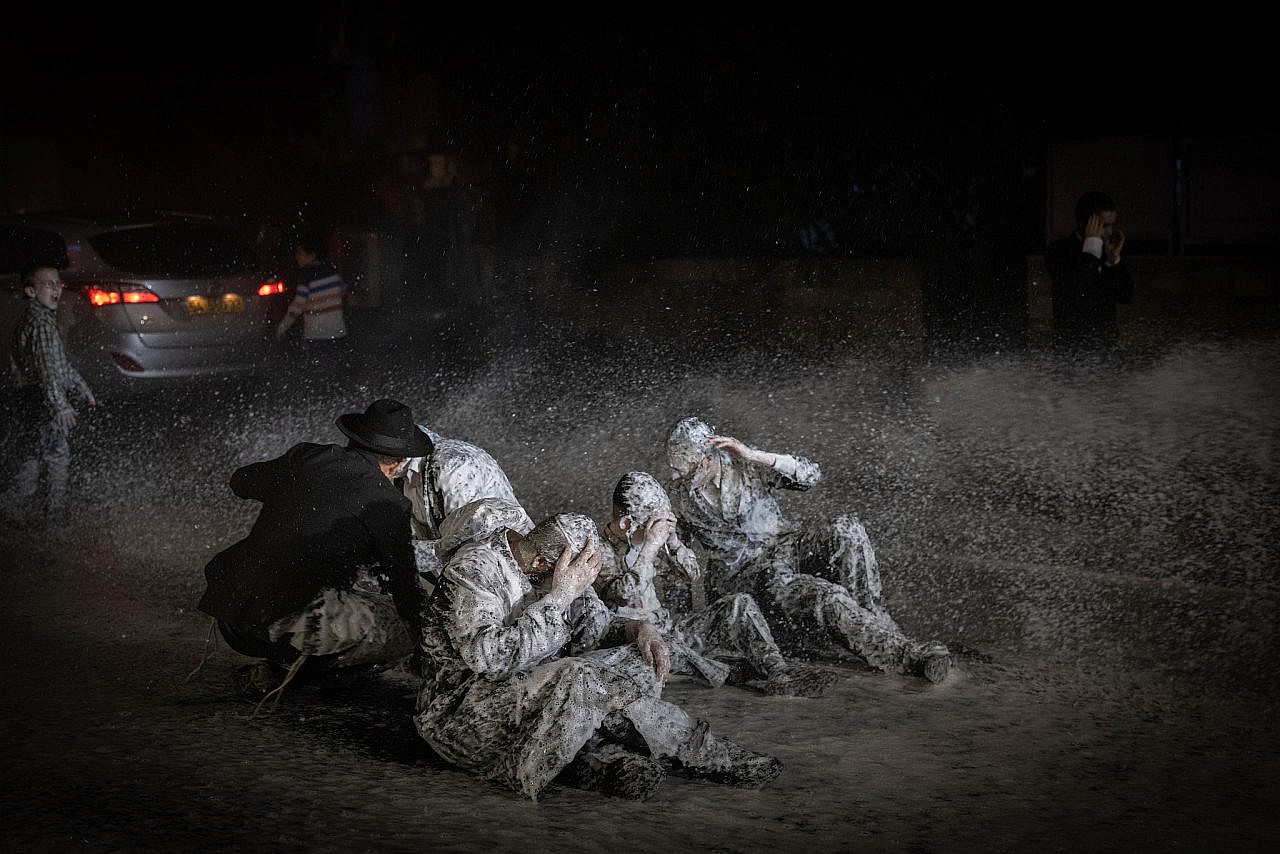
‘We don’t compromise on the Torah’
Beyond the fight against conscription, Sunday’s protest showed signs of a power struggle within Israel’s ultra-Orthodox society.
Although the Haredi parties in the Knesset — United Torah Judaism and Shas — oppose conscription and denounced the High Court’s ruling, they have not yet threatened to resign from the government, as some expected they might, nor have they joined the demonstrations. Haredi religious leaders are also angry that their politicians have agreed over the years to the idea of annual conscription quotas, which would gradually increase the number of army recruits from the community.
In a show of rage against this perceived complicity, protesters attacked the car of Yitzhak Goldknopf — Israel’s housing and construction minister, and the head of the Agudat Israel faction within United Torah Judaism — with stones and placards, forcing police to rescue him; they later attacked the car of Yaakov Litzman, also of Agudat Israel.
The rally, which took place in the main square of the ultra-Orthodox Mea Shearim neighborhood and overflowed into the nearby streets, featured several leading figures in Haredi Judaism, including both the Ashkenazi and Sephardi chief rabbis. The latter had warned in March that Haredi Jews would leave Israel en masse should the exemption be allowed to lapse.
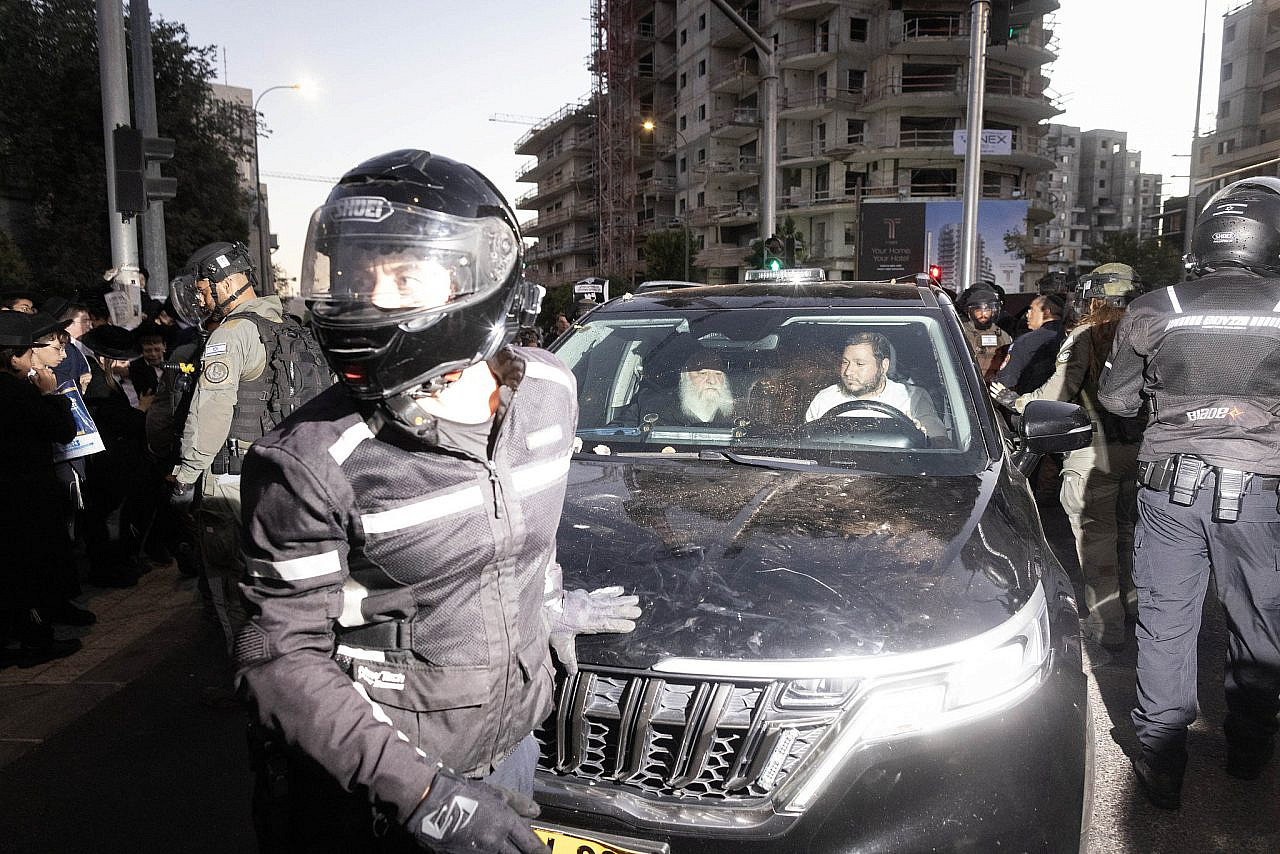
Most of the speeches were in Yiddish and aimed at the ultra-Orthodox public itself, but Rabbi Moshe Tzadka, head of the Sephardi yeshiva Porat Yosef, spoke in Hebrew as he attacked the Haredi parties in the Knesset: “These fools want to make compromises for the Haredi public? We are not the owners of the Torah, and we do not make compromises on the Torah.”
Later, Rabbi Moshe Sternbuch, head of the faction known as the Haredi Council of Jerusalem (Edah HaHaredit), spoke in Yiddish: “We demand one thing from the authorities: leave us alone, let us live according to the Torah. This is more precious to us than anything else! We will not compromise on one youth. And even if they want to take us to prison, we will not give up because we are slaves of the Holy One, blessed be He.”
‘It’s a religious war’
Eliyahu, a 21-year-old Sephardi student who attends an Ashkenazi yeshiva, told +972 at Sunday’s demonstration that he may also protest the imposition of “forced conscription” by refusing to start his national service — a civic alternative to serving in the army. “The train has already left the station,” he noted, blaming the Haredi parties that laid the foundations for conscription by previously agreeing to quotas. “But the protesters are dismantling the track.”
“The majority of the [ultra-Orthodox] public is not satisfied, to say the least, with the conduct of the Haredi parties,” Eliyahu continued. “Why are you there [in the government]? Meanwhile, they don’t have an answer.”
In practice, Eliyahu believes that it is more likely Sephardi Jews will be recruited before Ashkenazim. “Among the ultra-Orthodox, certainly among the devout ultra-Orthodox [Ashkenazim], few are really familiar with the army,” he said. “Among the Sephardim, some are more familiar, some have a relative who enlisted, they know what a soldier is, so they’re much more accessible.”
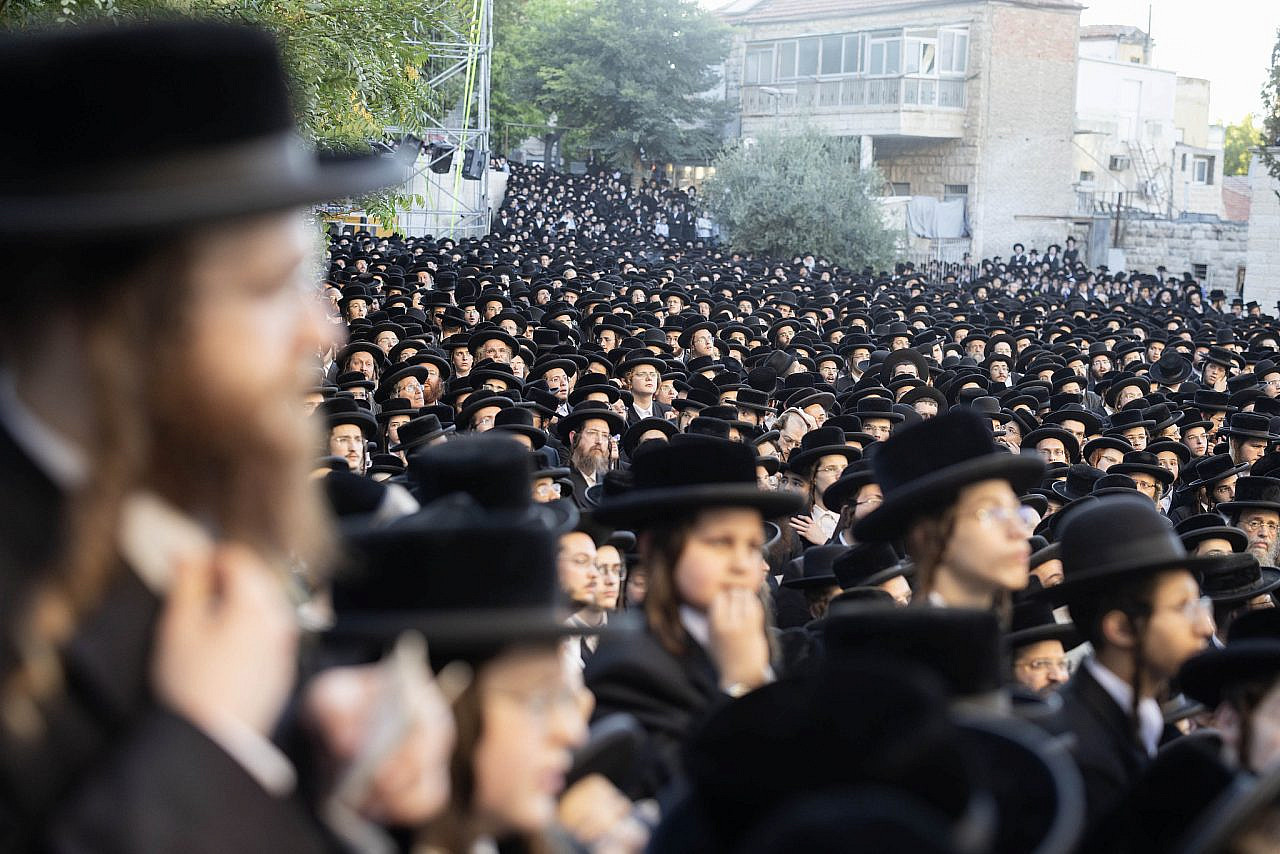
Elhanan Yisrael, a member of the anti-Zionist Neturei Karta sect, was hit by skunk spray while on the frontlines of the protest on Sunday. “The police think we will be convinced by violence, but they won’t succeed in conscripting our sons,” he told +972. “Something more serious than conscription is happening here: it’s a religious war, they want to subjugate us. I don’t think they need us [in the army], but they don’t understand that they are not fighting against people, but against an ideology.”
Yisrael described the ultra-Orthodox politicians as “high-level liars,” adding: “If they had some courage, they should have said, ‘We’re leaving the government — deal with it.’”
He also hit back against the Israeli mainstream who are demanding that Haredim join the war effort: “This is not our war. It is a war between a terrorist organization called Hamas, and a terrorist organization that we see as the Zionist State of Israel. Hamas wants to kill us; The Zionists and the government — it doesn’t matter if they’re left or right — want to take the Torah from us, which is also a kind of terrorism. The seculars should understand that when a soldier is killed, we don’t give out candy or dance; every human being’s heart hurts, but this is not our war at all.”
Last year, Yisrael was arrested and charged after joining a Neturei Karta delegation to the occupied West Bank city of Jenin, which met the family of Palestinian prisoner Bassam al-Saadi. After our interview, he removed his hat and showed me a sticker inside it with the words “Palestinian Jew” written on a Palestinian flag. At this point, some of the other protesters became angry at him: “You support murderers!” one youth shouted. “I have friends in the [occupied] territories,” Yisrael responded, before telling me: “For now, God has not given us [a state]; He has given [one] to them.”
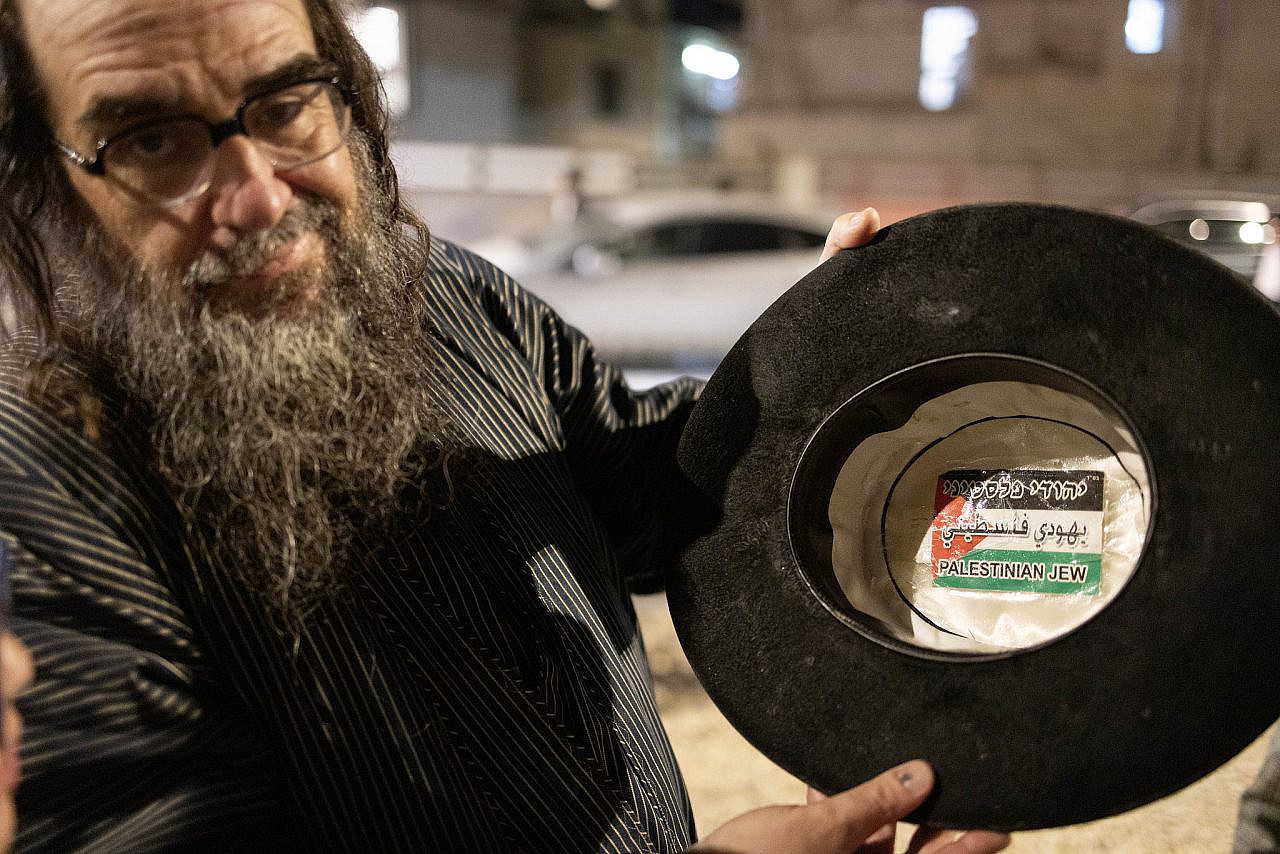
‘Nobody wanted to enlist Haredim a year ago; now it’s the most important civil issue’
According to ultra-Orthodox journalist Eli Bitan, opposition to the draft is the core issue that unifies Haredi society in Israel; he likens it to the stance of Palestinian citizens of Israel, who have also historically been exempted from conscription.
“The rabbis no longer unify,” he explained. “Nor do the [religious] studies, or even the separation from secular society, because there are Haredim who work in high tech or live in mixed communities. The sole [unifier] is that nobody who grew up in a Haredi family will set foot in the army.”
The High Court’s ruling, he continued, has shocked the Haredi public, “not only because of compulsory conscription but also because of the withholding of budgets: first, the scholarships for yeshiva students who now have to enlist, but the subsidies for day-care centers and property tax will also be affected. This is a heavy blow, amounting to thousands of shekels per family. It’s terrorizing the public.”
According to Bitan, the ultra-Orthodox parties are now in a bind. “They can complain about the High Court as much as they like, but ultimately it is their own error that since 2018 there have been several attempts at legislative arrangements … which could have avoided this whole drama.”
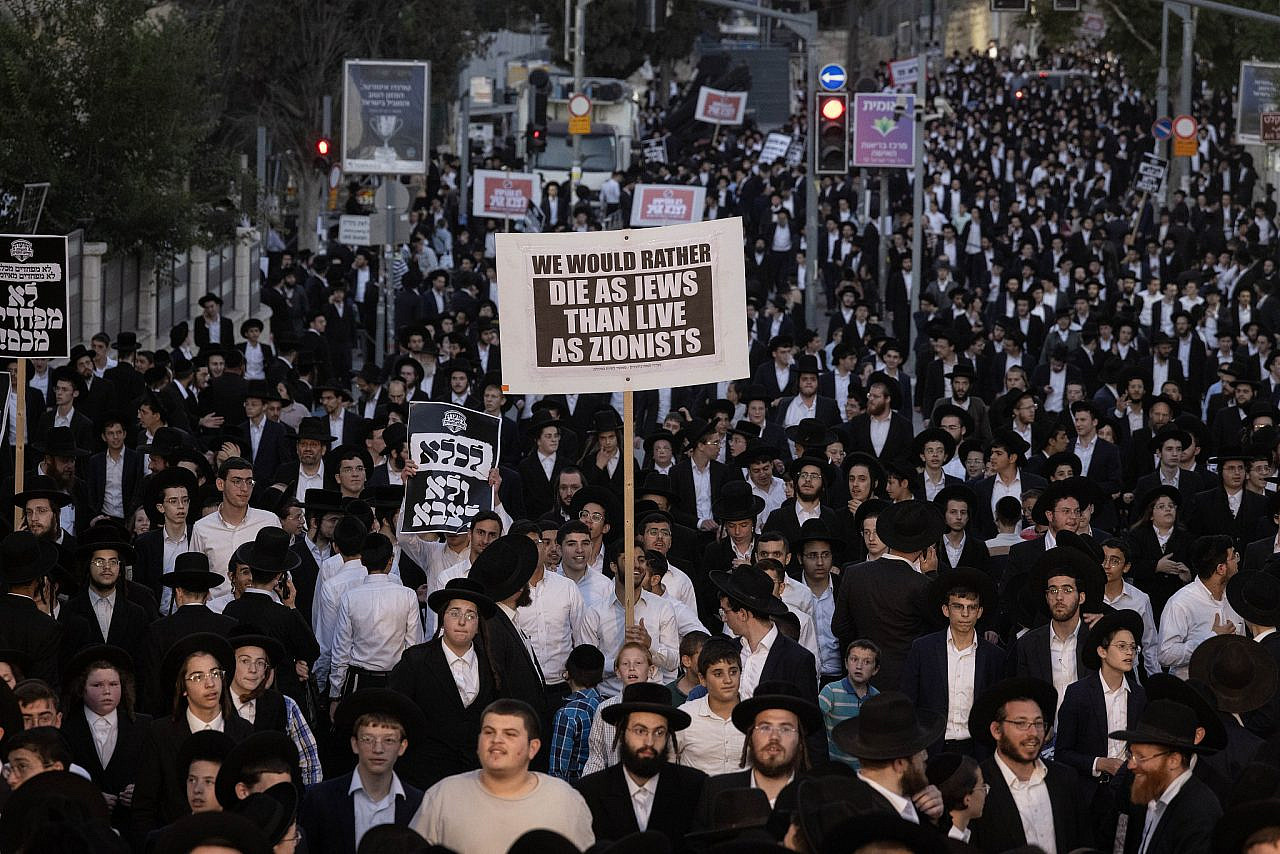
The Haredi parties, he explained, believed that there was no rush to resolve the issue and that eventually a fully right-wing coalition like the one that exists now would remove it from the agenda. But the war, and the high death toll among soldiers fighting in Gaza, has completely changed the conversation. “A year ago, nobody wanted to enlist Haredim, but now it’s the most important civil issue.”
‘We will fight for every person’
The first major anti-draft demonstration to follow the High Court’s ruling took place last Thursday in the ultra-Orthodox city of Bnei Brak. Hundreds of young people blocked a main road for hours; police tried to disperse them, but eventually gave up and allowed the protest to continue.
Avraham, a man in his late twenties, attended the protest with several friends. “We are now in a fight for the existence of Judaism, the existence of yeshivot, the existence of the Torah,” he told +972. “Our entire existence in the Land of Israel is in order to keep the Torah, so when they want to recruit yeshiva students [into the army], we will not allow it, we will go to the streets, we will fight, because this is the only way to express what we want.
“We are prepared to die before we enlist,” he added, repeating a slogan that is ubiquitous at every Haredi anti-draft demonstration. “This is an apostate country. It [says it speaks] in the name of Judaism, but it doesn’t. That’s why we will all go to prison happily before we enlist, God forbid.”
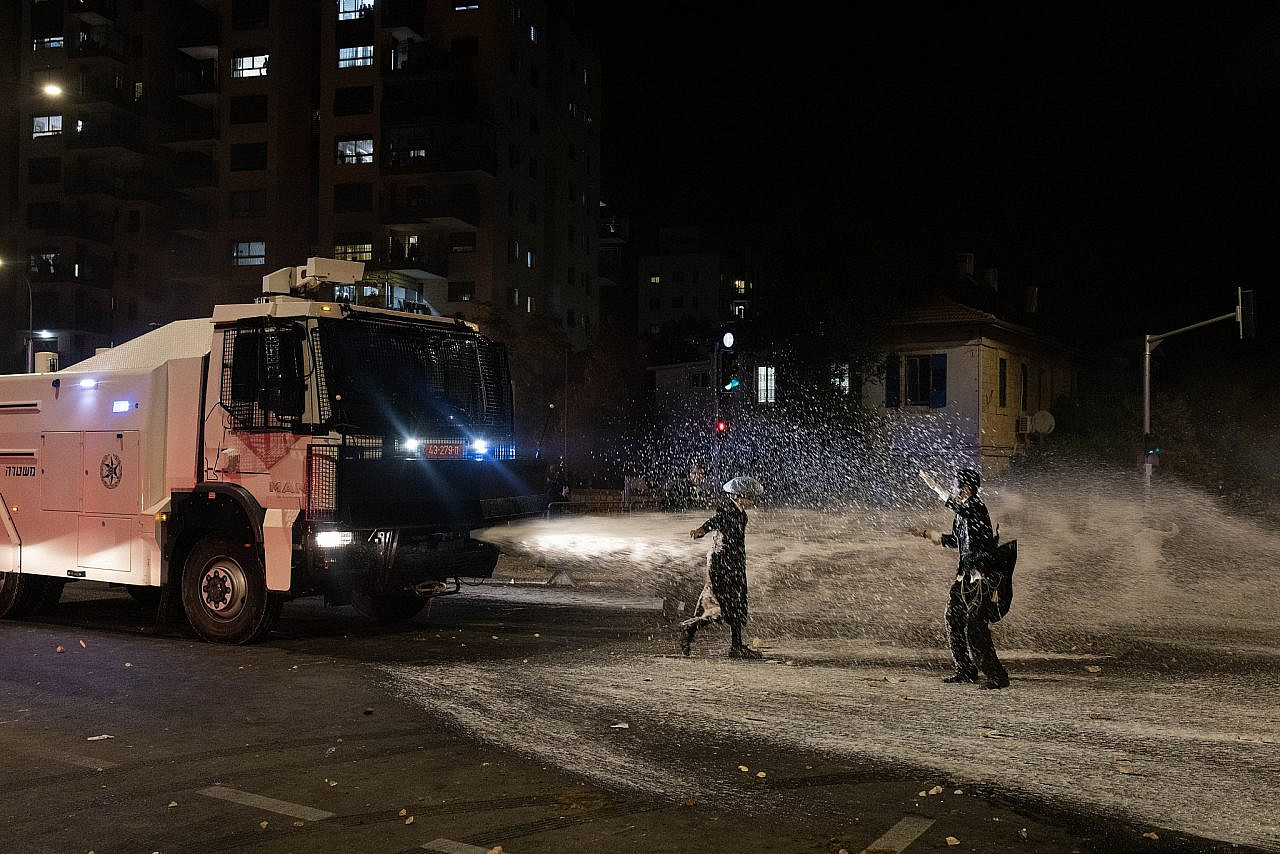
Dismissing the idea of gradual recruitment quotas, Avraham was defiant: “No yeshiva student will enlist, with God’s help — not 5,000, not 3,000, not even one. We will fight for every person, for every Jewish soul. We don’t recognize [the High Court’s decision]. We don’t recognize this whole country.”
Israel Krauss, 44, told +972 that he will not send his children to the army. “This is [an attack] on our religion,” he said. “They hate us. They want us to be irreligious. The whole Zionist movement was created in order to make all the religious Jews irreligious. They see that the Orthodox Jews are growing and growing; one of the heads of the Mossad said this is a worse problem than [the threat of] Iran. Therefore we can’t give in one millimeter, we can’t give in at all.”

